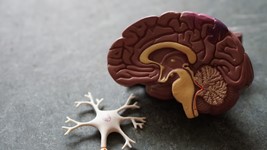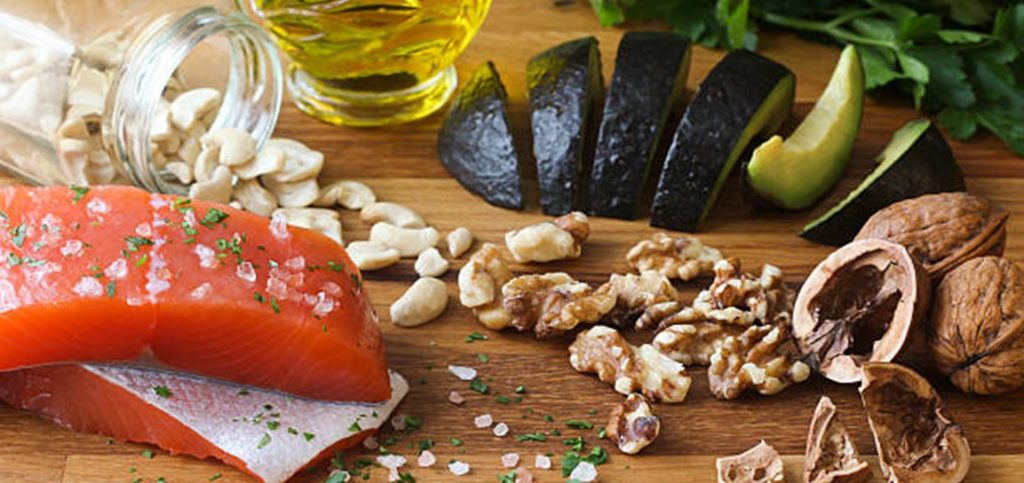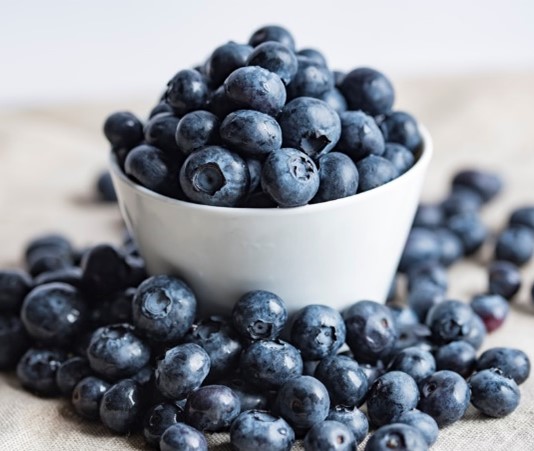The MIND Diet
What is it?
- A diet developed to potentially reduce the risk of cognitive decline and dementia, including Alzheimer’s disease, through nutrition and healthy food choices.
- “MIND” stands for Mediterranean-DASH diet Intervention for Neurological Delay. The MIND Diet is a combination of the Mediterranean and DASH (Dietary Approaches to Stop Hypertension) eating patterns, emphasizing foods that may impact brain health.
- A 3-year randomized control trial on the effects of the MIND Diet on cognitive decline and brain health began in 2017. It includes 600 individuals 65+ years of age without cognitive impairment who are overweight and had suboptimal diets. The study is estimated to be completed in 2021.1
How is it different from the Mediterranean and DASH Diet?
- The Mediterranean Diet is linked to lower risk of death from heart disease and cancer, as well as improvements in brain function and lower rates of chronic disease.2
- The DASH Diet helps lower blood pressure, can help reduce blood levels of homocysteine (a toxic amino acid), which in high levels can increase the risk of Alzheimer’s disease.2
- The MIND Diet combines the benefits of both with some slight changes:
- It suggests a minimum of 1 serving of fish per week
- As far as fruit recommendations, it specifically suggests eating berries (especially blueberries)
- Leafy greens are given their own category within foods to focus on eating
- One study found that the MIND diet, but not the Mediterranean diet, was associated with reduced odds of 12-year cognitive impairment.3
10 Food Groups to Include in the MIND Diet:
- Green leafy vegetables (>1 serving per day) – kale, spinach, cooked greens, salads, etc.
- All other vegetables (>1 serving per day) – emphasis on non-starchy veggies
- Berries (>2 servings per week) – blueberries, raspberries, blackberries, strawberries
- Nuts (5 servings per week) – eat a variety of different nuts
- Olive oil – as your main cooking oil or in salad dressings
- Whole grains (>3 servings per day) – oats, quinoa, brown rice, whole-wheat bread/pasta
- Fish (>1 serving per week) – choose fatty fish like salmon and sardines
- Beans (>4 servings per week) – all beans, lentils, and soybeans
- Poultry (>2 servings per week) – chicken and turkey; ideally not fried
- Wine (no more than 1 glass per day)
5 Food Groups to Limit on the MIND Diet:
- Butter & margarine (<1 tbsp per day) – instead, choose olive oil
- Cheese (<1 serving per week) – focus on lower fat dairy products
- Red meat (<3 servings per week) – beef, pork, lamb
- Fried food (<1 serving per week) – especially from fast-food restaurants
- Pastries & sweets (<4 servings per week) – ice cream, cookies, brownies, donuts, candy
Will it Help with Weight Loss?
The goal of the MIND diet is not centered around weight loss, but rather cognitive health. In order to lose body fat, fewer calories must be consumed than are expended through normal metabolic functions, daily activities, and exercise. Although the primary goal of the MIND Diet is not weight loss, it does focus on eating nutrient-dense whole foods with a reduced intake of higher-calorie foods like alcohol, fried foods, sweets, and high-fat foods. Reducing the consumption of these foods and replacing them with lower-calorie, more nutritious options will likely lead to a reduced calorie intake, which would contribute to weight loss.
What about Exercise?
- The MIND Diet does not specifically make exercise recommendations, but regular physical activity has many known benefits for both physical and mental health. These benefits include a reduced risk of cardiovascular disease, diabetes, and obesity, as well as increased bone and muscle strength, and reducing stress.4
- There is also evidence that physical activity benefits brain health and is a known modifiable risk factors for dementia.4
- Generally, at least 150 minutes per week of moderate intensity activity (i.e., a brisk walk) and at least 2 days per week of activities that strengthen muscles are recommended for adults 18-64 years of age. The recommendation is the same for older adults (65 years and older), with the addition of activities to improve balance, like standing on one foot.5
Final Notes:
- More information and studies are needed to validate the effects of the MIND Diet on dementia prevention, but since it is a diet based on whole, nutrient-dense, and minimally processed foods, it is likely to benefit the overall health status of most individuals.
- Listen to your body – There is no one diet for everyone. Some individuals may not tolerate some of the foods on the MIND Diet and it’s important to modify the diet based on foods that make you feel good.
- No food is inherently “bad” or unhealthy when eaten in moderate amounts. All foods can be part of a healthy diet, including those within the food groups to be limited on the MIND Diet. Focus the majority of your intake on balanced meals that include a variety of whole foods, along with enjoying some less nutrient-dense foods on occasion. The best diet for you is one that nourishes your body, while still allowing you to enjoy all of your favorite foods.
- If you want to begin following the MIND Diet, take it one step at a time. Setting small and achievable goals that are realistic for your lifestyle is key to sustainable habit change. Try identifying one meal to which you’d like to add a few MIND Diet foods, then progress to other meals and additional foods. Over time, these small changes will become more habitual and compound to result in manageable and long-term changes over time.
Sample 1-Day Meal Plan:
- Breakfast: Sunshine Vegan Breakfast Bowl
- Lunch: Chicken Curry Salad with Ginger, Almonds, & Grapes
- Snack: Simple Healthy No-Bake Granola Bars
- Dinner: Stuffed Sweet Potatoes with Peanut Sauce
For More Information:
- MIND Diet Overview: https://www.healthline.com/nutrition/mind-diet#TOC_TITLE_HDR_4
- MIND Diet Beginner’s Guide: https://www.pfizer.com/news/featured_stories/featured_stories_detail/the_mind_diet_a_guide_for_beginners
- MIND Diet Recipes: https://www.oatandsesame.com/category/MIND-diet-recipes/
References:
- https://pubmed.ncbi.nlm.nih.gov/30826160/
- https://www.drweil.com/diet-nutrition/diets-weight-loss/mind-diet/
- https://pubmed.ncbi.nlm.nih.gov/30826160/
- https://www.mayoclinic.org/diseases-conditions/alzheimers-disease/expert-answers/alzheimers-disease/faq-20057881
- https://www.cdc.gov/physicalactivity/basics/age-chart.html






